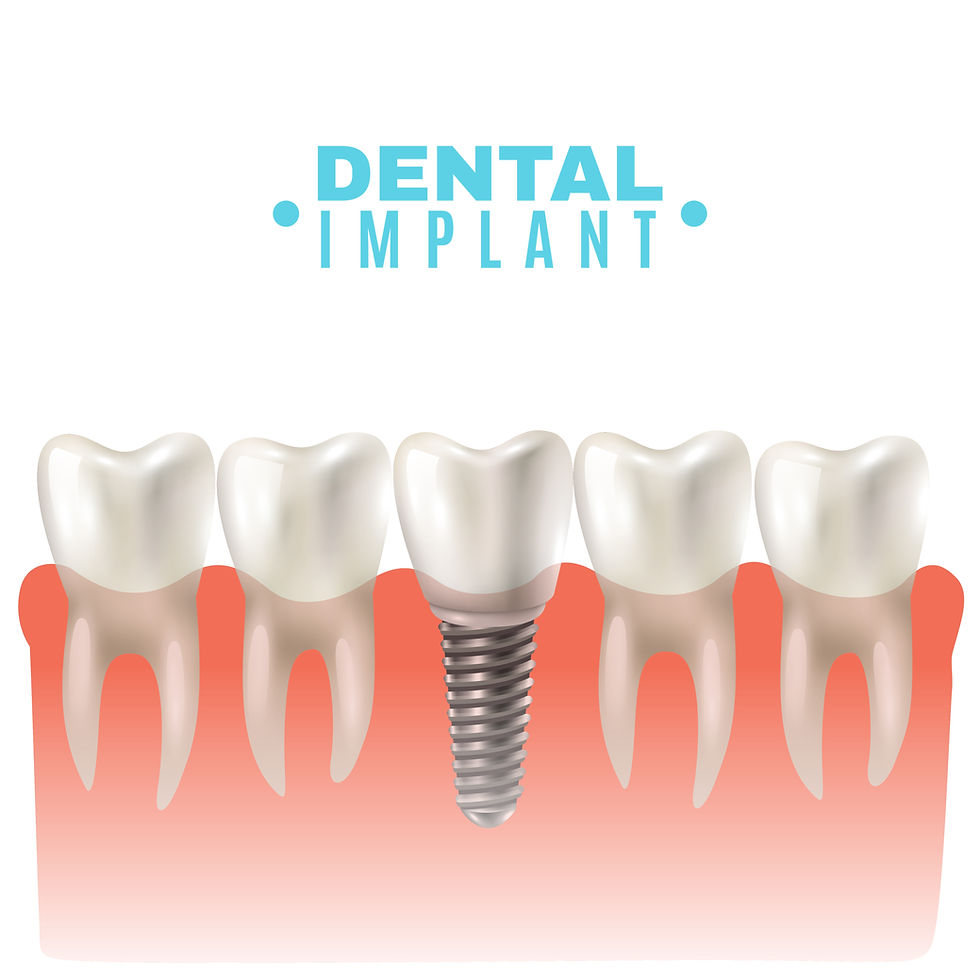Understanding Dental Anxiety and How Sedation Dentistry Helps
- Jack Ranson
- Oct 29, 2025
- 4 min read

Dental visits make a lot of people anxious. Some are so afraid that they would rather not go to the dentist for years. This fear can lead to untreated cavities, gum disease, and tooth pain that worsen over time. Sedation dentistry offers a solution, helping anxious patients receive complete dental care in a calm, relaxed state. This blog discusses the reasons for dental anxiety, its interference with treatment, the different available sedation options, safety matters, and how to choose a provider who can handle your concerns.
What Is Dental Anxiety
Dental anxiety is the term that stands for a spectrum of feelings from slight nervousness to a fear so extreme that dentists call it dental phobia. Research indicates that 9% to 20% of people are in such a state that they avoid the dentist altogether. Among the most frequent causes are the noise of the drill, fear of injections, anxiety about gagging, or bad experiences from the past. Anxiety is both emotional and physiological, which is why tailored approaches that include behavioural support and sometimes sedation can make such a big difference.
Anxiety and Its Impact on Dental Care
Anxiety can be so overwhelming that it can prevent the patient from seeking treatment. Fearful patients will often postpone their dental visits until the situation has worsened. A small cavity, which could have been treated with a simple filling, might eventually lead to a tooth that requires a root canal.
The next problem is physical tension. The patients suffering from anxiety may clench their teeth, tighten their neck muscles, or move around all the time. All these things make it difficult for the dentist to do their job safely. Therefore, the treatment lasts longer and is more stressful for everyone involved.
There is also a failure of communication. A person suffering from severe anxiety might not even tell the dentist about their pain during the procedure. Because anxiety affects the patients' tolerance for care, the doctors combine the use of sedation with the application of behavioural strategies whenever necessary.
Types of Sedation and What They Do
Sedation choices go from the most feeble relaxation to the most profound sleep. Each option serves a specific purpose based on the patient’s level of anxiety and the procedure being performed.
Common Options include
Nitrous oxide, often called laughing gas, provides mild anxiety relief with a fast onset and quick recovery afterward, making it suitable for nervous but cooperative patients.
With oral sedation, the doctor prescribes one or two pills to be taken before the appointment, which results in moderate sedation, but patients still feel sleepy and need to have a ride home.
IV sedation delivers medication through a vein for adjustable, fast-acting effects used for stronger anxiety or longer procedures, and this is where general sedation dentistry is sometimes discussed as the deeper end of the spectrum.
Topical and local anaesthetics are not sedatives, but are necessary for pain management and are often used with other methods of sedation to guarantee total comfort.
Who's a Candidate, Safety, and How to Prepare
Whether or not you will use sedation depends on your medical history, the kind of procedure, and your level of anxiety. Most healthy individuals can be sedated safely if the right precautions are taken.
Safety and Preparation
The first step is a medical review, so make sure to inform them about all the medications you take, your pregnancy status, any heart or lung conditions, and whether you have sleep apnea to ensure safety.
Fasting and arrival instructions differ according to sedation type, so it is essential to follow pre-appointment guidance thoroughly and to bring a responsible adult who will drive you home.
Monitoring and credentials are important, so ensure the clinic uses appropriate equipment, such as blood pressure cuffs and pulse oximeters, and that staff are trained in advanced life support.
Post-appointment plans should be clear to you before your visit, including recovery time, driving restrictions, and any follow-up care needed at home
When all these checks are in place, sedation can be very safe and highly effective in enabling care.
Selecting a Provider and Inquiries to Make
Look for a dental clinic in Saskatoon with clear sedation protocols, well-trained staff, and transparent pricing. You may also ask which kinds of sedation are available and which one would suit your case best. Also, find out who will be in charge of monitoring you throughout the procedure and what qualifications they have. A sedation dentist in Saskatoon who patiently responds to your questions can undoubtedly make you feel more assured.
Receiving the Treatment You Require
Being a trusted dental clinic in Saskatoon, West 14 Dental understands that the fear of going to the dentist is genuine and can often be the reason people avoid the dental treatment they need. The staff at West 14 Dental provides sensitive approaches and sedation as part of their services, personalized to each patient's comfort needs.
Contact West 14 Dental in Saskatoon to discuss a personalized sedation plan that helps you receive the care you need comfortably and confidently.









Comments